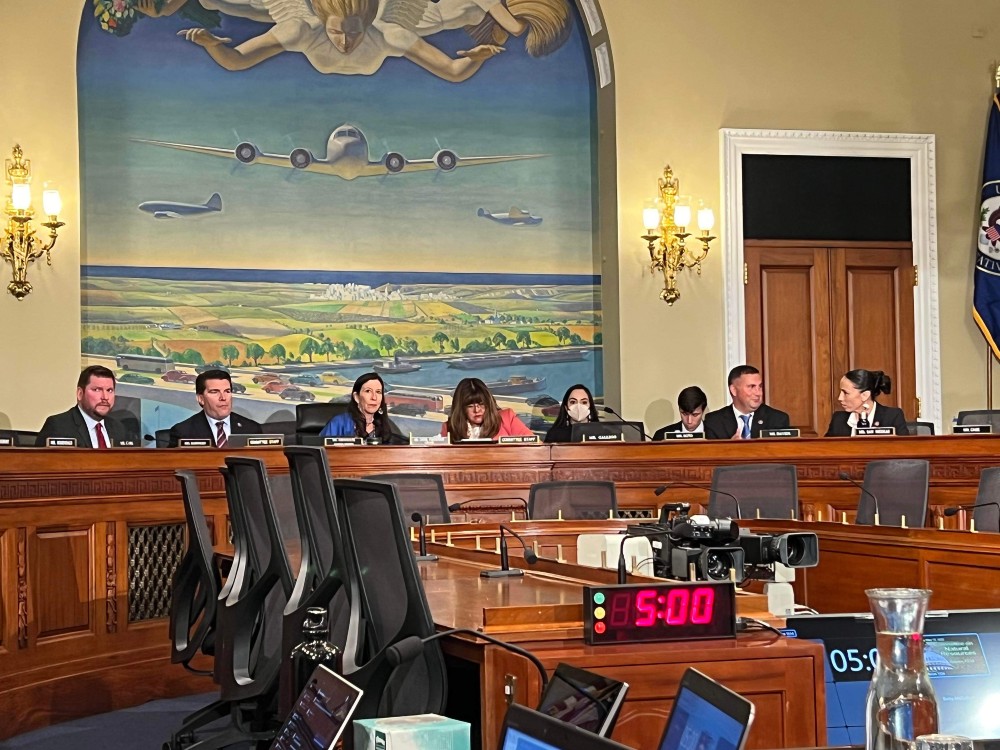
- Details
- By Darren Thompson
Today, the House Subcommittee for Indigenous Peoples of the United States hosted a hearing for H.R. 5444, the Truth and Healing Commission Bill on Indian Boarding School Policies Act. The hearing comes a day after the Department of Interior announced the first Federal Indian Boarding School Initiative Investigative Report.
“U.S. Indian Boarding School Policies stripped children from their families and cultures,” said U.S. Representative Sharice Davids (D-Kansas) in a Twitter post on Sept. 30, 2021, the same day she introduced the bill. “Those actions still have devastating impacts today. On today's remembrance day, I'm proud to introduce a bill to create a Truth and Healing Commission, helping Native families begin to heal.”
September 30 is also the National Day of Remembrance for U.S. Indian Boarding Schools, and it is known as National Day for Truth and Reconciliation in Canada. It is also known as Orange Shirt Day.
The Truth and Healing Commission Bill on Indian Boarding School Policies Act aims to address Indian boarding schools and the harmful legacy it has left among American Indian communities and families. If passed, it would establish powers, duties, and membership of a commission and would investigate the impacts and ongoing effects of the Indian Boarding School Policies. The commission would be empowered to investigate, document, and acknowledge the injustices that led to the immeasurable cultural loss at Indian boarding schools that were operated, maintained, and supported by the U.S. federal government.
Davids, an enrolled citizen of the Ho-Chunk Nation of Wisconsin, has bipartisan support for the bill.
“This legislation will establish a formal commission in the United States to investigate and document the attempted termination of Indigenous cultures and languages through U.S. boarding schools,” she said at the Subcommittee for Indigenous Peoples of the United States (SCIP) hearing on Thursday.
The bill also creates the Truth and Healing Advisory Committee, most likely to be guided by the National Congress of American Indians, the National Native American Boarding School Healing Coalition, the National Indian Education Association, and the National Indian Child Welfare Association. HR 5444 is also supported by more than 50 members of Congress, including Oklahoma Representative Tom Cole, a citizen of the Chickasaw Nation of Oklahoma.
Boarding school survivors and leaders of organizations representing boarding school survivors testified in support of H.R.5444, often citing the abuses children endured and how that has impacted their lives.
“My boarding school experience is very painful and traumatic,” Matthew Warbonnet, a boarding school survivor from South Dakota, testified. “At night time, you could hear all the children crying lonely for their families.” Warbonnet attended St. Francis Indian Boarding School on the Rosebud Sioux Indian Reservation.
Deborah Parker, Executive Director of the National Native American Boarding School Healing Coalition, also testified at the hearing. “On behalf of thousands of relatives, as well as 54 endorsements, and 26 resolutions from Tribes and national organizations, I am here to strongly support H.R.5444,” she said during her testimony.
The Subcommittee for Indigenous Peoples of the United States is accepting electronic statements for consideration of H.R.5444 until May 26. The National Native American Boarding School Healing Coalition encourages survivors to submit their stories to the House Committee on Natural Resources at [email protected].
Senator Elizabeth Warren (D-Massachusetts) introduced the Senate counterpart to H.R.5444 last September, and was referred to the Senate Committee on Indian Affairs, but has not yet received a hearing.
Tell Us What You Think
More Stories Like This
Native News Weekly (August 25, 2024): D.C. BriefsUS Presidents in Their Own Words Concerning American Indians
Native News Weekly (December 7, 2025): D.C. Briefs
Breaking: Final Defense Legislation Grants Federal Recognition to Lumbee Tribe
Why We Report: Chez Oxendine Shares His Story for Native News Online’s Year-End Campaign
Help us defend tribal sovereignty.
At Native News Online, our mission is rooted in telling the stories that strengthen sovereignty and uplift Indigenous voices — not just at year’s end, but every single day.
Because of your generosity last year, we were able to keep our reporters on the ground in tribal communities, at national gatherings and in the halls of Congress — covering the issues that matter most to Indian Country: sovereignty, culture, education, health and economic opportunity.
That support sustained us through a tough year in 2025. Now, as we look to the year ahead, we need your help right now to ensure warrior journalism remains strong — reporting that defends tribal sovereignty, amplifies Native truth, and holds power accountable.
 The stakes couldn't be higher. Your support keeps Native voices heard, Native stories told and Native sovereignty defended.
The stakes couldn't be higher. Your support keeps Native voices heard, Native stories told and Native sovereignty defended.
Stand with Warrior Journalism today.
Levi Rickert (Potawatomi), Editor & Publisher
